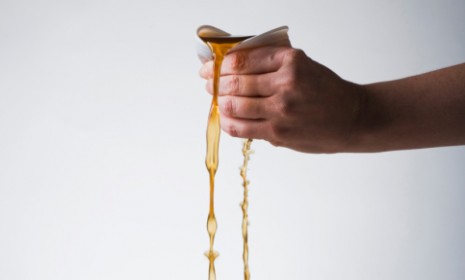5 historical attempts to ban coffee
If you can't imagine going without your morning cup of joe, writes Emmy Blotnick at Mental Floss, be thankful you weren't in Constantinople in the 17th century

A free daily email with the biggest news stories of the day – and the best features from TheWeek.com
You are now subscribed
Your newsletter sign-up was successful

1. Mecca
Coffee was banned in Mecca in 1511, as it was believed to stimulate radical thinking and hanging out — the governor thought it might unite his opposition. Java also got a bad rap for its use as a stimulant — some Sufi sects would pass around a bowl of coffee at funerals to stay awake during prayers. (Note to Starbucks: Time for a new size, the Funeral Bowl.)
2. Italy
The Week
Escape your echo chamber. Get the facts behind the news, plus analysis from multiple perspectives.

Sign up for The Week's Free Newsletters
From our morning news briefing to a weekly Good News Newsletter, get the best of The Week delivered directly to your inbox.
From our morning news briefing to a weekly Good News Newsletter, get the best of The Week delivered directly to your inbox.
When coffee arrived in Europe in the 16th century, clergymen pressed for it to be banned and labeled satanic. But Pope Clement VIII took a taste, declared it delicious, and even quipped that it should be baptized. On the strength of this papal blessing, coffeehouses rapidly sprang up throughout Europe.
3. Constantinople
After Murad IV claimed the Ottoman throne in 1623, he quickly banned coffee and set up a system of reasonable penalties. The punishment for a first offense was a beating. Anyone caught with coffee a second time was sewn into a leather bag and thrown into the waters of the Bosporus.
4. Sweden
A free daily email with the biggest news stories of the day – and the best features from TheWeek.com
Sweden gave coffee the ax in 1746. The government also banned "coffee paraphernalia" — with cops confiscating cups and dishes. King Gustav III even ordered convicted murderers to drink coffee while doctors monitored how long the cups of joe took to kill them, which was great for convicts and boring for the doctors.
5. Prussia
In 1777, Frederick the Great of Prussia issued a manifesto claiming beer's superiority over coffee. He argued that coffee interfered with the country's beer consumption, apparently hoping a royal statement would make Prussians eager for an eye-opening brew each morning. Frederick's statement proclaimed, "His Majesty was brought up on beer," explaining why he thought breakfast drinking was a good idea.
More from Mental Floss
-
 6 of the world’s most accessible destinations
6 of the world’s most accessible destinationsThe Week Recommends Experience all of Berlin, Singapore and Sydney
-
 How the FCC’s ‘equal time’ rule works
How the FCC’s ‘equal time’ rule worksIn the Spotlight The law is at the heart of the Colbert-CBS conflict
-
 What is the endgame in the DHS shutdown?
What is the endgame in the DHS shutdown?Today’s Big Question Democrats want to rein in ICE’s immigration crackdown